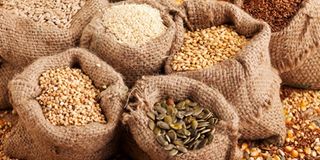Farmers pay dearly for using bad seeds

What you need to know:
The study by Lengo Institute of Agricultural policy shows that for every one acre of maize that is cultivated by small-scale farmers, only 0.72 per cent of the seeds used are of good quality.
Simiyu. The use of poor seed varieties is hampering food production, with yields declining every year by at least 10 per cent, findings of a new research have revealed.
The study by Lengo Institute of Agricultural policy shows that for every one acre of maize that is cultivated by small-scale farmers, only 0.72 per cent of the seeds used are of good quality.
These are part of the Institute’s preliminary findings of a research titled ‘Improving Middle-level Yield in Tanzania’. “The result of not using quality seeds is that yields drop by at least 10 per cent even though the total acreage of land under maize in the country is increasing,” said Alex Timotheo, a research fellow at Lengo.
According to him, over the last decade, more than 200 hybrid seed varieties have been developed, but small-scale farmers still have no access to them due to financial constraints.
Some of the challenges that farmers said they faced and which prevents them from using hybrid seeds is the high cost, counterfeit varieties in the market as well as sentimental attachments to local open-pollinated seed types, which they obtain from the previous crop.
Mr Maxwell Muhangira, an agricultural expert in Mwanza City, confirmed that maize production in the Lake Zone has been hampered by low quality of inputs used and poor agronomic practices.
He said the adoption of improved seed varieties is recognised as a key driver in improving productivity and addressing food security.




